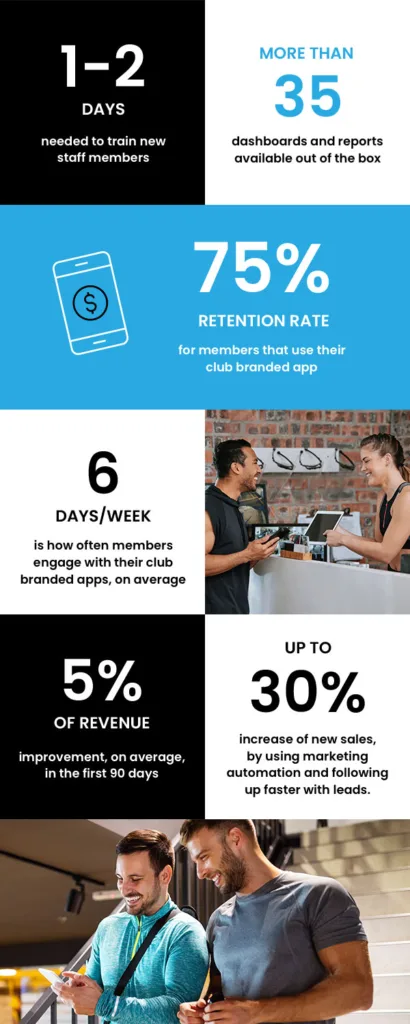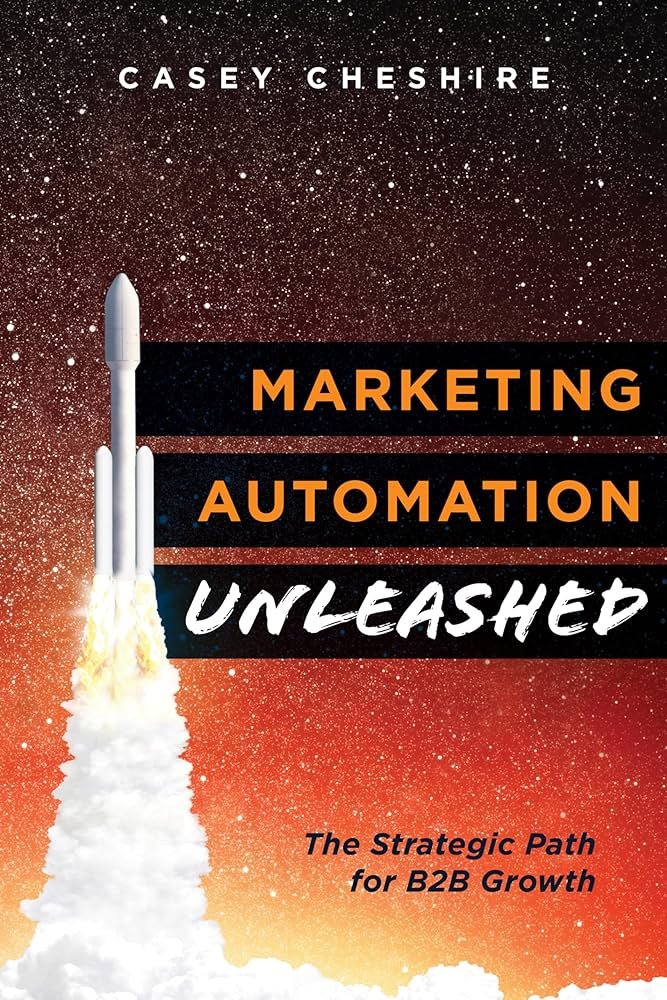Marketing sales automation streamlines sales processes by using software to automate tasks. It enhances efficiency and improves conversion rates for businesses.
In the fast-paced world of digital marketing, companies are constantly seeking ways to optimize their sales funnel, and marketing sales automation stands as a transformative solution. Implementing automation tools can lead to more effective lead management, targeted marketing campaigns, and personalized customer journeys, all of which contribute significantly to increased sales productivity.
Utilizing this technology allows sales teams to focus on closing deals and building relationships rather than getting bogged down with administrative tasks. With automation, businesses can nurture leads systematically and consistently, ensuring no opportunity is missed. By integrating sales and marketing efforts, marketing sales automation not only boosts the effectiveness of campaigns but also provides valuable insights through data analytics, helping businesses make informed decisions and strategically grow their customer base.

Credit: www.amazon.com
1. Introduction To Marketing Sales Automation
Marketing Sales Automation is a game-changer for businesses. It streamlines processes and increases efficiency. More time for strategy and creativity becomes available. It’s a blend of software and tactics. The aim is to automate repetitive tasks. These tasks range from email marketing to social media posting. Sales team activities also get automated. They include lead scoring and contact management. Automation tools empower teams. They achieve more with less effort.
1.1 Benefits Of Marketing Sales Automation
Marketing Sales Automation offers standout advantages:
- Enhanced Productivity: Teams focus on more creative tasks.
- Improved Lead Management: Quickly identify and nurture potential customers.
- Increased Revenue: Convert leads into customers faster.
- Consistent Communication: Personalize messages while maintaining brand voice.
- Better Analytics: Gauge campaign success with accuracy.
1.2 Key Features Of Marketing Sales Automation
Look for these features when choosing an automation solution:
| Feature | Description |
|---|---|
| Email Campaigns | Automatic sending of targeted emails. |
| Lead Scoring | Score leads based on engagement. |
| CRM Integration | Manage contacts and track interactions. |
| Social Media Management | Schedule and analyze social content. |
| Reporting Tools | Insights into campaign performance. |
2. Implementing Marketing Sales Automation
Streamlining your sales process with marketing automation tools can significantly boost efficiency. Embracing such technology enables seamless integration of marketing efforts and sales strategies, leading to improved lead conversion rates.
Implementing Marketing Sales Automation transforms businesses. It streamlines tasks. It increases efficiency. Aligning sales with marketing becomes simpler. Let’s dive into getting started with this process.
2.1 Assessing Your Sales And Marketing Processes
To begin, evaluation is key. Map out current workflows. Identify repetitive tasks. Look for bottlenecks. Understand your customer journey. This audit highlights areas for automation. Focus on points like lead generation, follow-ups, and conversion tracking. Use visuals like flowcharts. They give a clear picture of present operations.
- Map current workflows
- Identify repetitive tasks and bottlenecks
- Understand the customer journey
- Visualize processes with flowcharts
2.2 Choosing The Right Marketing Sales Automation Tools
Selecting the perfect tools requires research. Consider features like CRM integration and email marketing. AI and machine learning capabilities are a plus. Check user reviews and cost-effectiveness. Balance functionality with usability. Tools must align with your business goals.
| Feature | Importance |
|---|---|
| CRM Integration | Syncs sales data seamlessly |
| Email Marketing | Automates communication |
| AI & Machine Learning | Enhances customer insights |
| Cost-effective | Ensures high ROI |
| User Reviews | Offers real usage feedback |
2.3 Integrating Marketing Sales Automation With Existing Systems
Integration is crucial for success. Ensure new tools work with current systems. Data sharing should be smooth. Sales, marketing, and customer service platforms must connect. This eliminates data silos. It enables a unified approach to customer management.
- Review system compatibility
- Ensure smooth data sharing
- Connect sales, marketing, and customer service platforms
- Avoid data silos
- Adopt a unified customer management strategy
Implementing these steps effectively sets the stage for successful Marketing Sales Automation. It lays a solid foundation. It paves the way for a better customer experience. And it drives sales efficiency skyward.
3. Streamlining Lead Generation And Nurturing
In today’s competitive market, the ability to quickly generate and nurture leads can set your business apart. This section dives into effective strategies for streamlining these vital processes.
3.1 Identifying High-quality Leads
Finding the right leads is like searching for treasure. You need a map. Marketing sales automation tools become that map, guiding you to valuable prospects. Let’s explore how.
- Data Analysis: Tools assess data, pinpointing those who show genuine interest.
- Behavior Tracking: Potential customers are identified based on their online activity.
- Lead Scoring: Each prospect gets a score, filtering out the best ones.
3.2 Personalizing Lead Nurturing
Personal touch matters. Automation tools can send tailored messages to nurture relationships.
- Craft unique email campaigns that resonate with each lead’s interests.
- Automate follow-up tasks to keep the conversation going.
- Track engagement to constantly refine your approach.
3.3 Automating Lead Scoring And Segmentation
Automation shines in ranking leads and grouping them based on shared characteristics.
| Lead Scoring | Segmentation |
|---|---|
| Assign points based on interactions. | Divide leads into specific groups. |
| Identify sales-ready prospects faster. | Craft messages that target each group’s needs. |

Credit: abcfitness.com
4. Enhancing Sales Effectiveness
Sales effectiveness is the goal of any ambitious team. New tech tools can skyrocket sales numbers. Here’s how:
4.1 Automating Sales Processes
- Lead scoring: Rank prospects to focus on the most promising.
- Email campaigns: Send personalized follow-ups on autopilot.
- Quotes and proposals: Create with templates in a few clicks.
4.2 Improving Sales Team Collaboration
Tools that sync info make teamwork smooth. Shared calendars, real-time updates, and cloud storage keep everyone on the same page.
4.3 Tracking Sales Performance With Analytics
Charts and graphs show wins and losses. Discover trends and improve strategies with this data. Check these analytics:
- Conversion rates: See the percentage of leads turning into customers.
- Sales velocity: Find out how fast deals close.
- Pipeline health: Assess the balance of new leads and ongoing deals.
5. Measuring And Optimizing Marketing Roi
Understand the power of data in enhancing marketing efforts. Marketing Sales Automation takes you beyond executing campaigns. It opens a world of tracking and analyzing to maximize your marketing return on investment (ROI). Dive into the key aspects of measurement and optimization crucial for business growth.
5.1 Tracking Marketing Campaign Performance
Setting up effective tracking is a game-changer. Automate the monitoring of key metrics. Watch your campaign’s life cycle with precision. Look at click-through rates, conversion rates, and more. This data paints a clear picture of your campaign’s health.
- Click-Through Rates (CTR): Measure user engagement with your ads and emails.
- Conversion Rates: Track the percentage of users who take the desired action.
- Cost Per Acquisition (CPA): Understand the cost to acquire a customer.
5.2 Analyzing Customer Journey And Attribution
The customer journey is complex. Through sales automation, unravel this complexity. Analyze touchpoints and assign attribution. Discover the paths customers take. Which channels bring in the best results? Make informed adjustments to your strategy.
Attribution Models:
- First-Click Attribution: Credits the first interaction for the sale.
- Last-Click Attribution: Valuates the final touchpoint before conversion.
- Multi-Touch Attribution: Distributes credit across several touchpoints.
5.3 Optimizing Marketing Activities Based On Data
Use the data at hand to fuel strategic decisions. Is one channel underperforming? Shift your focus. Are your emails not hitting the mark? Refine your messaging. Test, learn, and refine. Data-driven optimization leads to smarter spending and better returns.
| Action | Benefit |
|---|---|
| A/B Testing | Compare two versions to identify the best performer. |
| Segmentation | Target specific groups for more personalized messaging. |
| Budget Reallocation | Move funds to the highest-performing channels. |

Credit: martech.zone
Frequently Asked Questions On Marketing Sales Automation
What Is Marketing Sales Automation?
Marketing sales automation involves using software tools to streamline and enhance sales and marketing tasks. It helps in nurturing leads, simplifying workflows, and improving customer engagement, ultimately driving efficiency and sales growth.
How Does Automation Impact Sales Performance?
Automation optimizes sales tasks, ensuring consistent follow-ups and timely customer interactions. By automating routine tasks, sales teams can focus on closing deals and personalizing customer experiences, which can significantly boost their performance.
Can Automation Tools Integrate With Crm Systems?
Yes, most automation tools are designed to integrate seamlessly with CRM systems. This ensures that all customer data and interactions are synchronized, providing a unified view of customer activities and enhancing the overall sales process.
What Are The Benefits Of Sales Automation For Small Businesses?
Sales automation levels the playing field for small businesses by providing scalable solutions for managing leads, customer data, and marketing campaigns, without the need for extensive manual effort or large teams.
Conclusion
Embracing marketing sales automation transforms business efficiency. It ensures personalization at scale, nurtures leads, and boosts conversions. Strengthen your strategy today. Unlock the full potential of your sales funnel. Propel your business growth with the power of automation. Start now, and witness the remarkable difference it makes.




